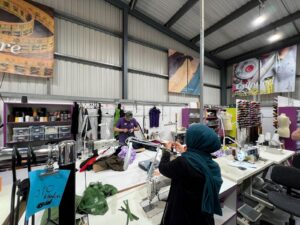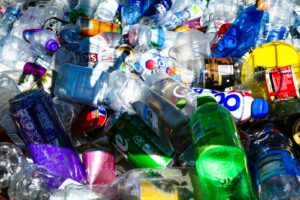Scotland passes 60% recycling rate for the first time
Scottish recycling, composting and re-use of waste from all sources has gone past the 60% milestone for the first time, in new figures for 2016 published by the Scottish Environment Protection Agency (SEPA).
SEPA attribute an increase in the recycling of soils and mineral waste for the numbers, as well as a sharp rise in food recycling and anaerobic digestion.
Households and businesses recycled 605,614 tonnes of organic wastes in composting or anaerobic digestion facilities, an increase of 102,580 tonnes (20.4%) from 2015 statistics and a 78.1% boost since 2011.
2016 also saw the lowest quantity of Scottish waste landfilled since 2011.
Overall in 2016, 6.96 million tonnes (61%) of waste was recycled, composted or prepared for re-use, over half a million tonnes more than in 2015.
Total waste generated in Scotland fell by over half a million tonnes (0.53m tonnes) since 2015, with Scotland achieving the lowest quantity of waste being landfilled since 2011 – a 10.3% decrease from 2015.
Terry A’Hearn, chief executive of the Scottish Environment Protection Agency, said:
‘Recycling is a real Scottish success story and a simple daily step that communities, corner shops or corporates can take to build a more sustainable Scotland. The scale of the environmental challenge is enormous and we know we live on one planet, but consume the resources of three.
‘The most successful countries in the 21st century will be resource efficient, circular economies, where what once was waste is valued as a resource. We are committed to helping all regulated businesses do more to support waste prevention and facilitate the use of secondary resources in the economy, helping communities and businesses thrive within the resources of our planet.’
Environment secretary Roseanna Cunningham said:
‘I’m pleased to see that the amount of Scottish waste being collected in Scotland has decreased. For the first time we’ve recycled more than 60% of our waste from all sources which shows we are making progress towards our 2025 target of 70% and our work to promote and simplify recycling is paying off.’
Iain Gulland, chief executive, Zero Waste Scotland, said:
‘These figures show some really positive progress towards a more circular economy – a big increase in recycling and reuse, more food waste being recycled, less waste going to landfill, and especially less climate-harming biodegradable waste. This has been achieved with hard work from local authorities and others, as well as the growing understanding of the importance of recycling and waste reduction in homes and businesses.
‘They also show the importance of setting an ambitious and long-term policy direction. Scotland has led the way by introducing stretching targets and measures to limit and ultimately phase out the use of landfill for the most polluting wastes. That’s why Scotland is recognised as a world leader on the circular economy and why others are now emulating our approach.’















